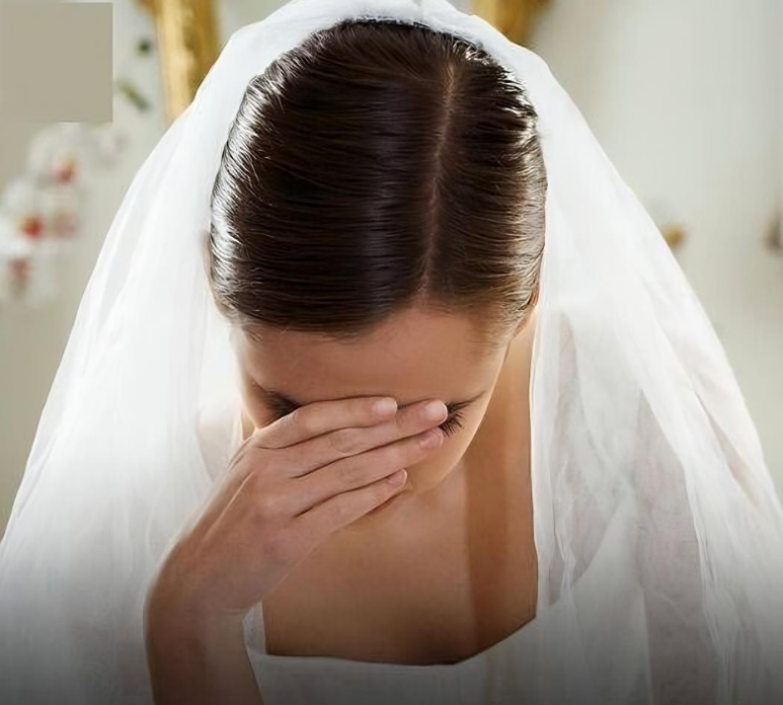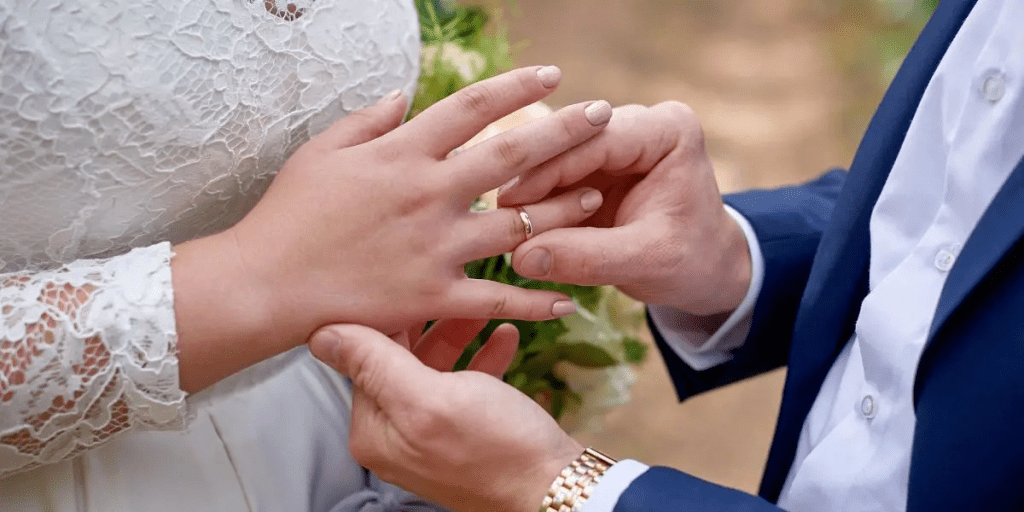Weddings are meant to be a celebration of love, unity, and the start of a new chapter in life. But for one Canadian bride, the pursuit of a dream wedding quickly became a spectacle of entitlement, greed, and shattered relationships. In a shocking turn of events, Susan, the would-be bride, decided to charge each of her wedding guests $1,500 to fund her lavish ceremony. When her guests refused to pay the outrageous fee, Susan’s dream wedding spiraled into chaos, leading her to cancel the entire event.

This unbelievable story, which quickly went viral on social media, left many reeling, questioning how the essence of such a special day could be distorted by sheer selfishness. Let’s take a closer look at this unfolding saga, the lessons it holds, and the deeper implications about the true meaning of marriage and the dangers of materialism.
The Bride’s Outrageous Request: $1,500 to Attend the Wedding
From the start, Susan’s wedding plans were grandiose. She envisioned a $60,000 wedding—an ambitious figure for most couples. Instead of scaling down her plans or finding cost-effective alternatives, Susan concocted a shocking strategy: she decided to charge each of her guests a $1,500 “contribution” to fund her big day.
In Susan’s eyes, this fee wasn’t just a donation; it was a mandatory entry ticket to her lavish celebration. Her explanation? She wanted to “be a Kardashian for a day.” The request was bold, to say the least, and the response was predictably negative. Friends and family, many of whom were already struggling with their own financial burdens, were appalled by the demand.
While it’s not uncommon for couples to accept monetary gifts as wedding presents, charging a steep attendance fee is another story altogether. For Susan, however, this idea seemed perfectly reasonable. She expected guests to cover the costs of her extravagant desires, which included designer gowns, a luxury venue, and a five-course meal. Yet, what she failed to anticipate was the backlash that soon followed.
Social Media Fallout: Public Outrage and Viral Condemnation
When word of Susan’s demand spread on social media, it didn’t take long for the story to go viral. Thousands of users shared their disbelief and disapproval, condemning Susan’s approach as greedy and entitled. Many argued that weddings are supposed to be about love and unity, not financial transactions.
Public Reactions: Shock and Disbelief
People from all walks of life weighed in, calling Susan’s actions “the height of selfishness” and “a complete misunderstanding of what marriage represents.” Some labeled her request as “wedding extortion,” while others couldn’t help but joke about her desire to live out a “Kardashian fantasy.” Despite the humor, the underlying sentiment was clear: Susan’s decision to charge guests for her wedding was widely seen as crossing a line.
Critics pointed out that weddings should be about celebrating love and commitment with the people who matter most, not about funding personal fantasies of wealth and excess. The incident struck a nerve, highlighting a broader trend of consumerism overshadowing the true essence of life’s important milestones.

The Bride’s Infamous Facebook Rant
As the backlash grew, Susan took to Facebook to express her frustration. In an explosive post, she lashed out at those who refused to pay the $1,500 fee, calling them “filthy f***ing poor excuse[s] of a friend.” Her rant, filled with expletives and venom, did little to win her any sympathy. Instead, it solidified her reputation as a “bridezilla” consumed by materialism.
Susan’s rant only fueled the public’s disapproval. Comments flooded in, criticizing her lack of humility and empathy. One commenter summed it up best: “When you invite someone to your wedding, it should be to share a meaningful moment, not to serve as your personal ATM.”
The Wedding’s Collapse: A Relationship in Crisis
Amidst the chaos, Susan’s fiancé suggested a simpler solution: eloping or having a modest ceremony within their means. To him, it was a practical approach that prioritized their love over extravagant displays. But Susan wasn’t having it. She dismissed the idea as “cheap, filthy, w****-like,” and refused to compromise.
The End of an Engagement
The disagreement over wedding costs became a major source of tension between the couple. What started as a dream wedding soon became a nightmare of clashing priorities, culminating in a decision that shocked both families: the couple called off the wedding just four days before the scheduled date.
Friends close to the couple revealed that Susan’s relentless pursuit of her extravagant vision, coupled with her refusal to adapt, had ultimately driven them apart. Her obsession with the “perfect” wedding had taken precedence over her relationship, leading to a heartbreaking conclusion.
A Sobering Reminder of Priorities
The breakdown of Susan’s engagement serves as a powerful reminder that the trappings of a wedding should never overshadow the commitment that marriage represents. A successful marriage is built on mutual understanding, compromise, and respect—values that seemed to be lost in Susan’s quest for grandeur.
Lessons from Susan’s Cautionary Tale: Humility, Responsibility, and the Essence of Marriage
Susan’s story is more than just a viral spectacle; it’s a cautionary tale with profound lessons about love, humility, and fiscal responsibility.
Lesson 1: Weddings Should Reflect the Couple’s Values, Not Just Their Desires
A wedding is one of life’s most significant events, meant to symbolize love, unity, and partnership. It should reflect the values and shared dreams of the couple, not just an individual’s desires for luxury. Susan’s approach to her wedding was fundamentally flawed because it prioritized superficial displays over genuine connection and meaning.
Lesson 2: Fiscal Responsibility Matters
While it’s natural to want a memorable wedding, it’s crucial to consider financial limitations. Weddings are just the beginning of a lifelong partnership, and starting off with financial strain can create lasting issues. Susan’s decision to charge guests $1,500 to fund her extravagant dream wedding was not just unrealistic; it was financially reckless.
Lesson 3: Relationships Require Compromise
At the core of Susan’s story is a failure to compromise. Her fiancé’s suggestion of a simpler ceremony was met with scorn, revealing a lack of willingness to adapt to changing circumstances. In any relationship, compromise is key—whether it’s about wedding plans or major life decisions.
Lesson 4: Don’t Lose Sight of What Truly Matters
Weddings are about more than just one day; they’re about the commitment of two people to spend the rest of their lives together. Susan’s downfall was her focus on creating a one-day spectacle rather than building a lasting foundation of love, trust, and mutual respect.

The Broader Implications: Materialism in Modern Weddings
Susan’s saga sheds light on a larger issue: the growing trend of materialism in modern weddings. Social media has contributed to unrealistic expectations, as couples often feel pressured to create Instagram-worthy events that showcase wealth and status. This trend has led to a surge in “dream weddings” that are not always financially feasible or grounded in what truly matters.
The Impact of Social Media
Platforms like Instagram and Pinterest have popularized the idea of “fairytale weddings,” filled with designer dresses, luxury venues, and elaborate decorations. While there’s nothing wrong with wanting a beautiful wedding, the pressure to keep up with unrealistic standards can lead to financial strain, emotional stress, and relationship issues.
Reimagining the Modern Wedding
It’s time to reimagine weddings as celebrations of love rather than opportunities for one-day displays of excess. Couples can create meaningful, memorable experiences without going into debt or placing unreasonable demands on their loved ones. From intimate gatherings to simple elopements, there are countless ways to celebrate love authentically.
Conclusion: A Return to the True Meaning of Marriage
The tale of Susan’s ill-fated wedding is a stark reminder of the dangers of entitlement, greed, and a misplaced focus on materialism. Weddings should be about love, connection, and commitment, not about achieving social media fame or living out celebrity fantasies. Susan’s story serves as a lesson in humility and a call to return to the essence of what makes marriage meaningful: two people choosing to walk through life together, grounded in love and mutual respect.
As future brides and grooms plan their weddings, it’s crucial to keep sight of what truly matters. By prioritizing relationships over materialism, couples can ensure that their weddings are not just lavish events but meaningful beginnings to lifelong partnerships. After all, the success of a marriage is not measured by the grandeur of the wedding day, but by the strength, love, and resilience of the bond it represents.



